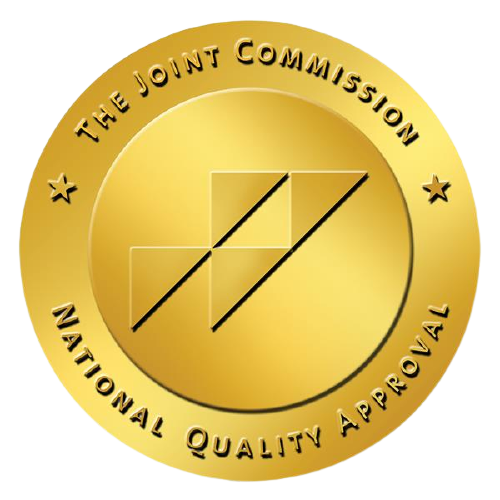Home Health Care
Home Health Care FAQ
What is Home Health Care?
Is Home Health Care Right for Me?
Who Pays for Home Health and How Much Does it Cost?
Home health care is typically paid for by Medicare or private insurance if the person receiving care meets the eligibility requirements set forth by their insurance (generally, when services are ordered by a physician and a clinical assessment deems them necessary). Patients over 65 years old meeting the program’s eligibility requirements are covered by Medicare and/or Medicaid. Insurance companies, managed-care organizations and workers’ compensation may likewise pay for the same. Other funding sources may include:
- Medicaid (If person receiving care qualifies)
- Veterans benefits
- Long-term care insurance
- Workers’ compensation
- Private pay (Direct payment by person receiving care)
Who Provides the Care?
Home health care services are provided by a care team that have been certified and licensed by each discipline’s respective state agency. Each care team staff goes through a rigorous screening process and are required to undergo continuous regular training to ensure they remain up to date with the latest health care standards. The care team includes:
- Registered Nurses
- Licensed Vocational Nurses
- Physical Therapists
- Occupational Therapists
- Speech Therapists
- Home Health Aides
- Medical Social Workers
Where is Home Health Care provided?
Home health care services can be provided wherever home is—a private residence, a senior living community, or while staying with a friend or family caregiver.
How Long Does Home Health Care last?
There is no fixed length of time for home care—it changes based on a person’s needs, situation, and speed of recovery. Some home care services may last a few weeks, while others may be longer term. If a physician is prescribing your home care, he or she will oversee services until your goals are met.
Do I Have to be 65 Years Old and Over to Receive Home Health Care Services?
While the majority of our patients are seniors, it is not necessary to receive home health care services. We also regularly provide care to adults who are returning home after a serious accident or young adults that have been diagnosed with a serious chronic medical condition among other things.
Do You Have to be Hospitalized Before Receiving Home Health Care?
Although a person is typically transferred to our care after a hospital discharge, it is not always the case. We also regularly receive referrals directly from primary care physicians, specialists, and other healthcare providers.
Home Health Care FAQ
Open / Close all Accordions with switch
Home health care primarily helps patients to recover from injury, illness, a medical procedure, or cope with a chronic illness within the comfort of their home. Home health care likewise aids in promoting health improvement, quality of life, independence, and prevention of unnecessary re-hospitalization of patients.
Home health care allows people that have various illnesses and ailments to continue to remain safe and independent at home as they cope with their condition. Care may be needed either for short or long term, and it is especially beneficial for people who are:
- Living with dementia or Alzheimer’s disease
- Managing a long-term or a setback of a chronic medical condition
- Recovering after an illness, injury or hospital stay
- Living with a traumatic brain or spinal cord injury
- With complicated cardiac and/or respiratory issues
Home health care enables a person to live as independently as possible without having to give up the comforts of their home. It allows the person to be in a familiar environment, sleep in their own bed at night, and stay close to family, friends, and pets. It also brings peace of mind to know they have access to skilled, professional, reliable care when it’s needed. Home care can also be significantly more cost effective, convenient, and may provide better results when compared to other types of care.
Home health care is typically paid for by Medicare or private insurance if the person receiving care meets the eligibility requirements set forth by their insurance (generally, when services are ordered by a physician and a clinical assessment deems them necessary). Patients over 65 years old meeting the program’s eligibility requirements are covered by Medicare and/or Medicaid. Insurance companies, managed-care organizations and workers’ compensation may likewise pay for the same. Other funding sources may include:
- Medicaid (If person receiving care qualifies)
- Veterans benefits
- Long-term care insurance
- Workers’ compensation
- Private pay (Direct payment by person receiving care)
Home health care services are provided by a care team that have been certified and licensed by each discipline’s respective state agency. Each care team staff goes through a rigorous screening process and are required to undergo continuous regular training to ensure they remain up to date with the latest health care standards. The care team includes:
- Registered Nurses
- Licensed Vocational Nurses
- Physical Therapists
- Occupational Therapists
- Speech Therapists
- Home Health Aides
- Medical Social Workers
Home health care services can be provided wherever home is—a private residence, a senior living community, or while staying with a friend or family caregiver.
There is no fixed length of time for home care—it changes based on a person’s needs, situation, and speed of recovery. Some home care services may last a few weeks, while others may be longer term. If a physician is prescribing your home care, he or she will oversee services until your goals are met.
While the majority of our patients are seniors, it is not necessary to receive home health care services. We also regularly provide care to adults who are returning home after a serious accident or young adults that have been diagnosed with a serious chronic medical condition among other things.
Although a person is typically transferred to our care after a hospital discharge, it is not always the case. We also regularly receive referrals directly from primary care physicians, specialists, and other healthcare providers.


